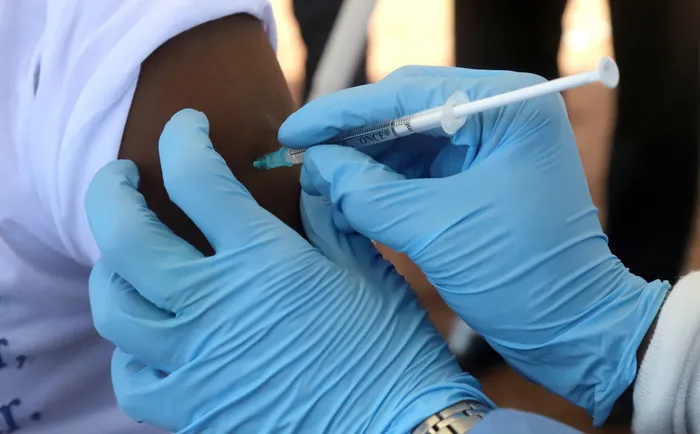Push to give 12 to 17-year-olds Covid jab questioned

File picture: Reuters
Cape Town - Medical experts have weighed in on the Department of Health’s announcement that children aged 12 to 17 can consent to get one Pfizer dose of a coronavirus vaccine.
Health Minister Dr Joe Phaahla announced on Friday that the government had reached a stage where it was ready to open up vaccinations for the about 6 million children between the ages of 12 and 17 from Wednesday.
The department is aiming to get at least 50% of this cohort vaccinated by December.
“We believe this will come handy as schools start exams or are advanced towards concluding the academic year and preparing for the next year.
’’The Pfizer vaccine has been approved by Sahpra (the SA Health Products Regulatory Authority) for this age group and will be used for this purpose,” Phaahla said.
During the media briefing, acting director-general for the Department of Health Dr Nicholas Crisp explained that it is possible for teenagers in this cohort to go for vaccination without their parents’ consent, much to the surprise of South African parents.
“There are provisions within the sub-clauses of the Children’s Act that explain which children can get consent for what.
’’Children do not need their parent’s consent generally for any medical treatments and there are specific guidelines on that but parents can give consent for their children to get vaccinated,” Crisp said.
Section 129 of the Children’s Act states that “a child may consent to his or her own medical treatment or to the medical treatment of his or her child if, the child is over the age of 12 years; and the child is of sufficient maturity and has the mental capacity to understand the benefits, risks, social and other implications of the treatment”.
The act also states that parents, guardians and caregivers may consent to the medical treatment of the child if the child is over the age of 12 but is of insufficient maturity or is unable to understand the benefits, risks and social implications of the treatment.
This move was met with shock from South African parents, however, the chairperson of the SA Medical Association Dr Angelique Coetzee told The Star that she believed parents were shocked or furious because they were not aware of the act’s provisions on medical consent.
“It’s not us deciding that they don’t need to get parents’ consent, it is according to the act.
’’We can debate on whether it’s wrong or right but it’s still in the Act… It’s also difficult for us as medical practitioners to see a child and you think, ‘If it was my child, what would I have done? I would have loved my child to speak to me,’ but the act is clear,” Coetzee said.
The VMAC advised that for now, the cohort will only be given one dose, while assessing information that in a few instances there have been short-lived cases of transient myocarditis after two doses.
“This rare finding of these adverse effects is a slight inflammation on the heart muscle, which has been noticed in a few cases.
’’VMAC advised that while it is being monitored all over the world, at this stage there has been no indication that the first doses have any serious side effects,” the minister said.
The timing of the second dose will be informed by further information, according to the minister.
Professor Shabir Madhi, dean of the Wits University health faculty, questioned the decision to start vaccinating teens, saying giving one shot to children in this cohort had “limited public health value” and less benefit at an individual level.
“The only rational for a single dose is possibility of a high percentage of people having already been infected with the virus.
’’Which is very likely, and makes the need for vaccinating children for direct individual benefit even less useful,” Madhi said.
The expert said if the vaccines will expire, they should be donated to neighbouring counties without access, be given to healthcare workers with their boost or provide a third dose for the over 60-year-olds, people living with cancer, renal issues and immuno-compromised people.
“If all else fails, I guess use it rather than tossing it,” he said.
The Star